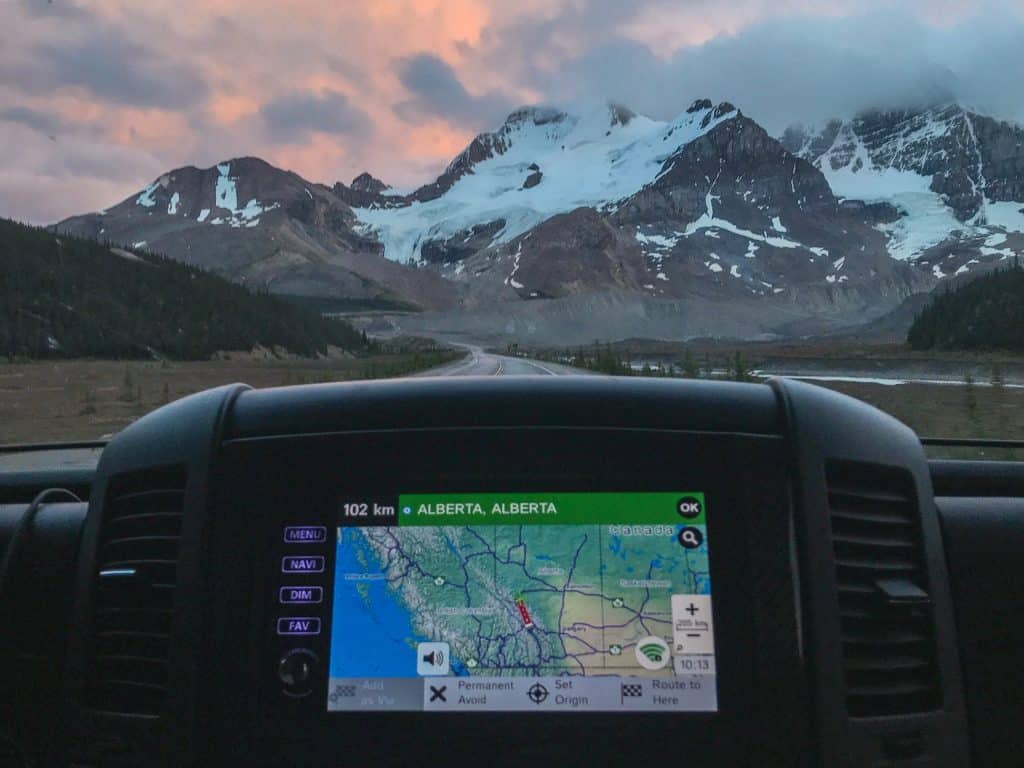
Buying an RV is an exciting time, but it can also be a little intimidating. If you’ve never owned one before, there’s a lot to learn! Here we provide some helpful recommendations for new RV owners.
The most important first step is to familiarize yourself with the RV, whether it’s a new or used motorhome, a Happier Camper, a travel trailer, or any type in between. Ensure that you know exactly how each system works and where everything is. If you’re buying from Camping World, we’ll give you a thorough walkthrough and answer all of your questions at delivery.
Once you drive your new camper off the lot, there are some other important things you should know before hitting the road.
Here are 5 tips for new RV owners:
Table of Contents
TogglePurchase and Pack the Essentials
You’ll need to first make sure that you have all the equipment you need in order to operate and maintain the RV. While each RV will have different essentials, based on the type and it’s features, here’s a basic list of must-haves.
- Sewer hose
- Fresh water hose
- Leveling blocks
- Wheel chocks
- 15M/30F amp power adapter
- RV septic-safe toilet paper
- Water pressure regulator
- RV cleaning items (wash, wax, ladder, bucket, sponge)
After you’ve purchased the must-have items in order to operate your RV, there are plenty of accessories and other items you’ll want to consider as well. This includes various tools, add-on features like solar panels or a satellite antenna, outdoor gear, storage solutions, etc. Got a lot of electronics? Don’t forget to snag an RV power adapter or electrical adapter so all of your appliances can be powered up and ready to go for your trip! Camping World’s online store has everything you could ever imagine to turn your RV into the perfect adventure-mobile and home!
Ensure You Have an RV-Specific GPS

A common mistake that many new RV owners make is assuming you can take any route to your destination. It’s often second nature to type an address into your smart phone or glance at a map and mindlessly follow the directions. However, directions from a navigation app or standard GPS will not know that you are driving an RV, which can lead to a very dangerous situation.
All over the country are roads with low-clearance bridges, tunnels, and roads with weight capacities and restrictions. First, you’ll want to make sure you know the height and weight of your RV. Also, you’ll want to avoid narrow roads, hairpin curves, and roads with low hanging tree branches. The only way to ensure your route is safe for your RV is to invest in an RV-specific GPS. This will keep you from having to stop traffic to turn around, help you avoid damaging your RV, and enjoy your drive without white knuckles on the steering wheel.
If you’re RV didn’t come with a GPS system installed, you can check out Camping World’s selection here.
Create a Checklist

With every RV comes a list of precautions and steps to take before you are ready to hit the road. Forgetting even the smallest of tasks can put you, your RV, and others on the road with you in danger. Each RV will have its own unique checklist, depending on the type, model, and features. A few examples of checklist items are:
- Pull the steps in
- Lower the antenna
- Turn off and close fans on the roof
- Water heater off
- Water pump off
- Slide in
- Secure loose items
- Retract jacks
Be sure to get your hands on the right RV jacks for your adventures. It makes life so much easier.
Again, this is a very condensed checklist, but gives new RV owners an idea of how many precautions you need to take to ensure you and your RV have a safe trip. It’s important that you create your checklist specific to your RV. Good Sam has a great, basic pre-trip checklist here. Along with a checklist, you never want to hit the road without doing a thorough walkaround of your RV and ensuring that you aren’t leaving anything behind.
Take It on a Test Run
It’s so common for new RV owners to be so excited for their first trip, that they skip out on taking it on a test run. Even if you’ve owned RVs before, it’s still helpful.
A test run is the best way to learn the ins and outs of the camper and try out all the features. It’s also a great time to create the safety checklist we just mentioned.
Taking a test run takes the pressure off, and offers you all the practice you need to make your first real trip a success. A quick overnight at a campground in town is really all you need!
Plan ahead for your maiden voyage!

Don’t get too busy preparing the RV, testing it out, and packing it up, that you forget the important preparations for your first camping trip out! It’s never fun to be looking forward to a trip, only to have it ruined by a lack of planning. Here are a few tips for making sure your first camping trip in your new RV goes smoothly:
- Don’t travel too far. It’s best to plan your first trip fairly close to home. The farther you have to drive, the more likely you are to run into issues. Driving long distances can also be tiresome, harder to plan, and can take some of the joy out of your first experience in the RV.
- Make reservations. It’s always a risk showing up at a campground or RV park without a reservation and hoping they can fit you in. On your first trip, you don’t want the added stress of having to drive or call around to find a place to stay. There is so much peace of mind knowing exactly where you’ll be parked each night.
- Avoid over-scheduling. Try to have some flexibility with your itinerary. Delays always tend to come up and feeling rushed when you’re traveling is not safe. Being in a hurry almost always leads to careless mistakes.
- Stay full on gas and propane. This tip is fairly obvious, but we all tend to push it a little too close sometimes. Nothing ruins a trip like running out of gas and being stranded or not being able to operate your RV’s heat, fridge, and/or stove.
- Check the weather. Yet another step that can be easy to forget that can really impact travel! Safe road conditions and comfortable weather are essential for a safe and memorable trip!
Now you’re all set! We hope these tips and resources help you enjoy your new RV to the fullest. A safe and prepared camper is a happy camper! As always, visit your local Camping World if you intend to sell or trade-in your current RV for an upgrade.
Author
-
Lindsay McKenzie travels full-time in her Winnebago Navion with her husband Dan and their 2 dogs. Originally from Colorado, they have been seeking adventure together for 10 years now and have done a lot of international traveling, including living in Costa Rica. They took the leap into full time RVing after experiencing life-altering news. They viewed the news as a life “detour” and started a travel and inspirational blog called Follow Your Detour. Lindsay has grown more passionate about pursuing her dreams and a leading a fulfilling life, while inspiring others to do the same. She loves that RVing allows her to be in nature and do more of what she loves. You can usually find her on the river fly fishing, hiking to sunset spots, or at a local brewery.
View all posts









Nice advice. Love a checklist to tick. Will create one
An RV-Specific GPS is NOT an essential. Gee whiz.
Very helpful – especially, the check lists from Good Sam! Thanks. What free app would you recommend for RV campgrounds?
The biggest cause of rv. fires is not turning off the propane connected to the fridge yet that was not included on the check list. Its probably the most important thing!
Thanks for the advice. Sounds like it will be very helpful. I appreciate all the advice I can get.